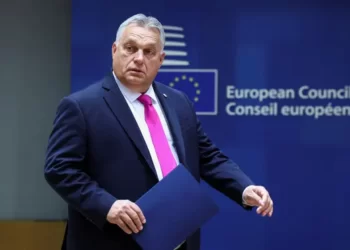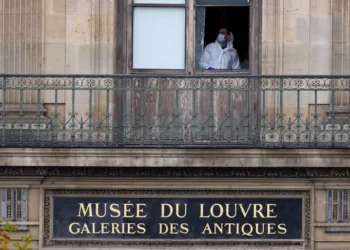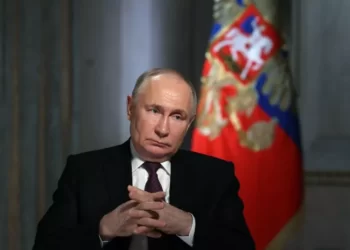The European Commission has proposed suspending certain trade-related provisions of the Association Agreement between the EU and Israel.
In addition, it announced that it had put bilateral support for Israel on hold with the exception of contributions to support civil society and the Yad Vashem holocaust museum. It also proposed sanctions on Hamas, extremist ministers and violent settlers.
In a statement, Commission said that the proposal on the trade agreement follows a review of Article 2 of the association agreement following “the blockade of humanitarian aid, the intensifying of military operations and the decision of the Israeli authorities to advance the settlement plan in the so-called E1 area of the West Bank.”
The EU member states need to adopt the proposed suspension with a qualified majority. The decision will enter into force on the date of its adoption.
If adopted by the member states, who need to agree to it under qualified majority vote system (QMV), the proposal by the European Commission would merely mean goods would no longer be duty free and subject to tariffs that apply to all non-EU countries that do not have a trade agreement with the bloc.
The EU is responsible for 32% of Israel’s total trade in goods with the world, selling some €16bn in 2024.
Israeli exports include everything from jet engines to pharmaceuticals including those from Teva. However, not all goods are exported under tariffs, as they are for example not imposed on pharmaceuticals under a longstanding World Trade Organization agreement.
Under the QMV system two conditions have to be met. 55% of member states need to back to the move. This means 15 out of 27 member states, but the bigger barrier is that the proposal must be supported by member states representing 65% of the total EU population.
Germany represents 18% of the EU population, France 15% and Italy 11%.
EU Trade Commissioner, Maroš Šefčovič at a press conference noted that in practice, the proposed suspension means that imports from Israel to the EU “will lose the preferential access to the EU market, and that these goods will be charged duties at the level applied to any other third countries with whom the EU has no free trade agreement.
“We regret having to take this step. However, we believe it is both appropriate and proportionate given the ongoing humanitarian crisis in Gaza.”
Maroš Šefčovič
Šefčovič said that the total trade in goods amounted to €42.6bn in 2024, making the EU Israel’s number one trading partner.
Proposed Partial Suspension A Carefully Considered Response

Moreover, Šefčovič noted that in light of these figures and the principles at stake, the proposed partial suspension is “a carefully considered response to an increasingly urgent situation.”
He stated that the EU “believes that now is the time that we must work together to end also the humanitarian crisis in Gaza.”
“This means unrestrained access for humanitarian aid, the immediate release of all hostages held by Hamas and an urgent ceasefire to stop the bloodshed. Ultimately, Israel needs real security and the Palestinian people need real dignity.
Maroš Šefčovič
Šefčovič admitted that the impact of the removal of free trade access, would be “modest”, as he told reporters that their suggestions that tariffs would amount to an additional cost of just €227m a year were “correct.”
“I would say the whole context of the decision was very political. … I think there was strong expectations that European Union have to use the tools at its disposal to address the humanitarian crisis.”
Maroš Šefčovič
Whatever its economic consequences, the proposed move can be seen as a hugely symbolic move.
READ ALSO: Lands Minister Intervenes in Asanko Gold Impasse, Pledges Swift Resolution























